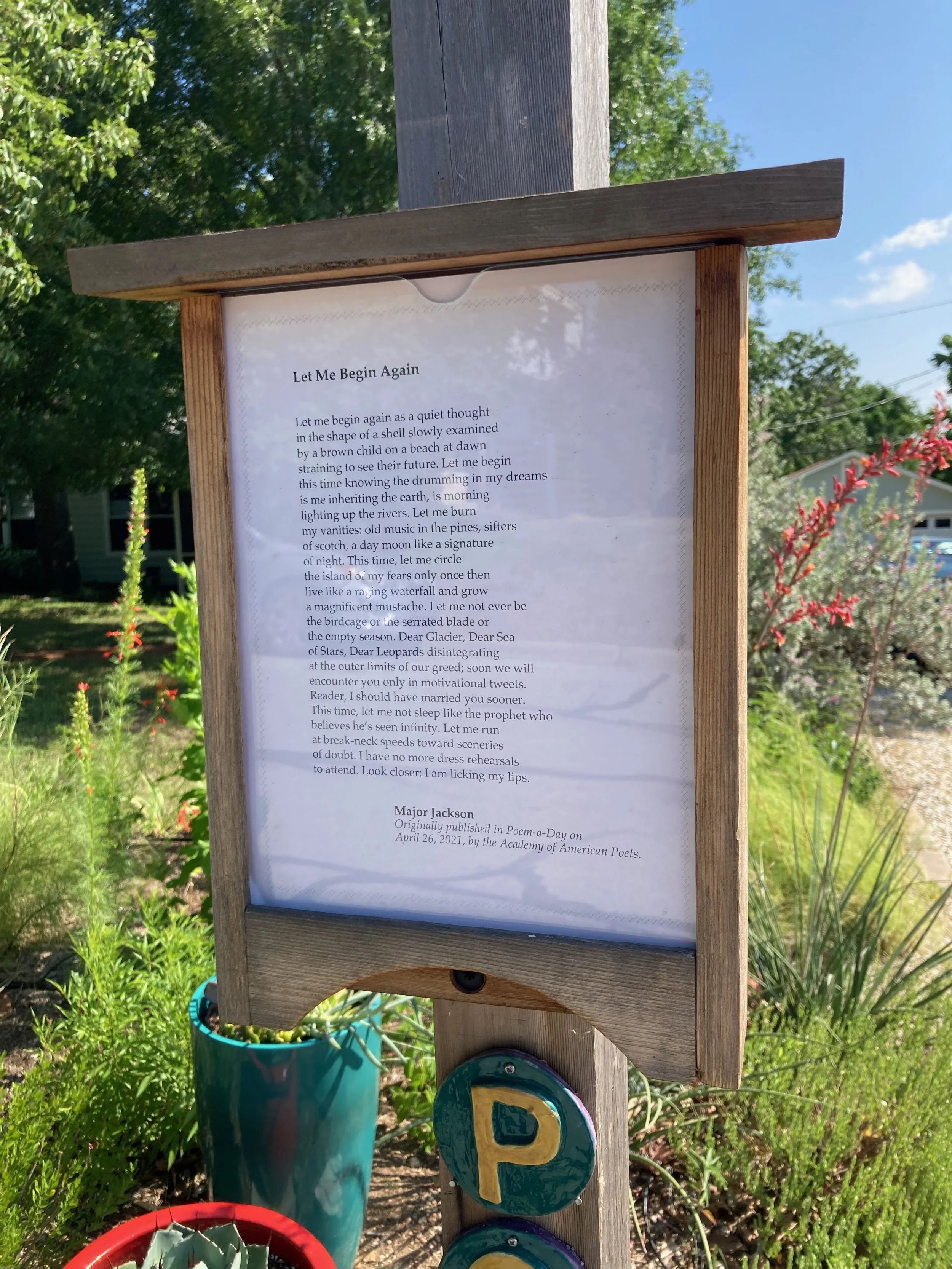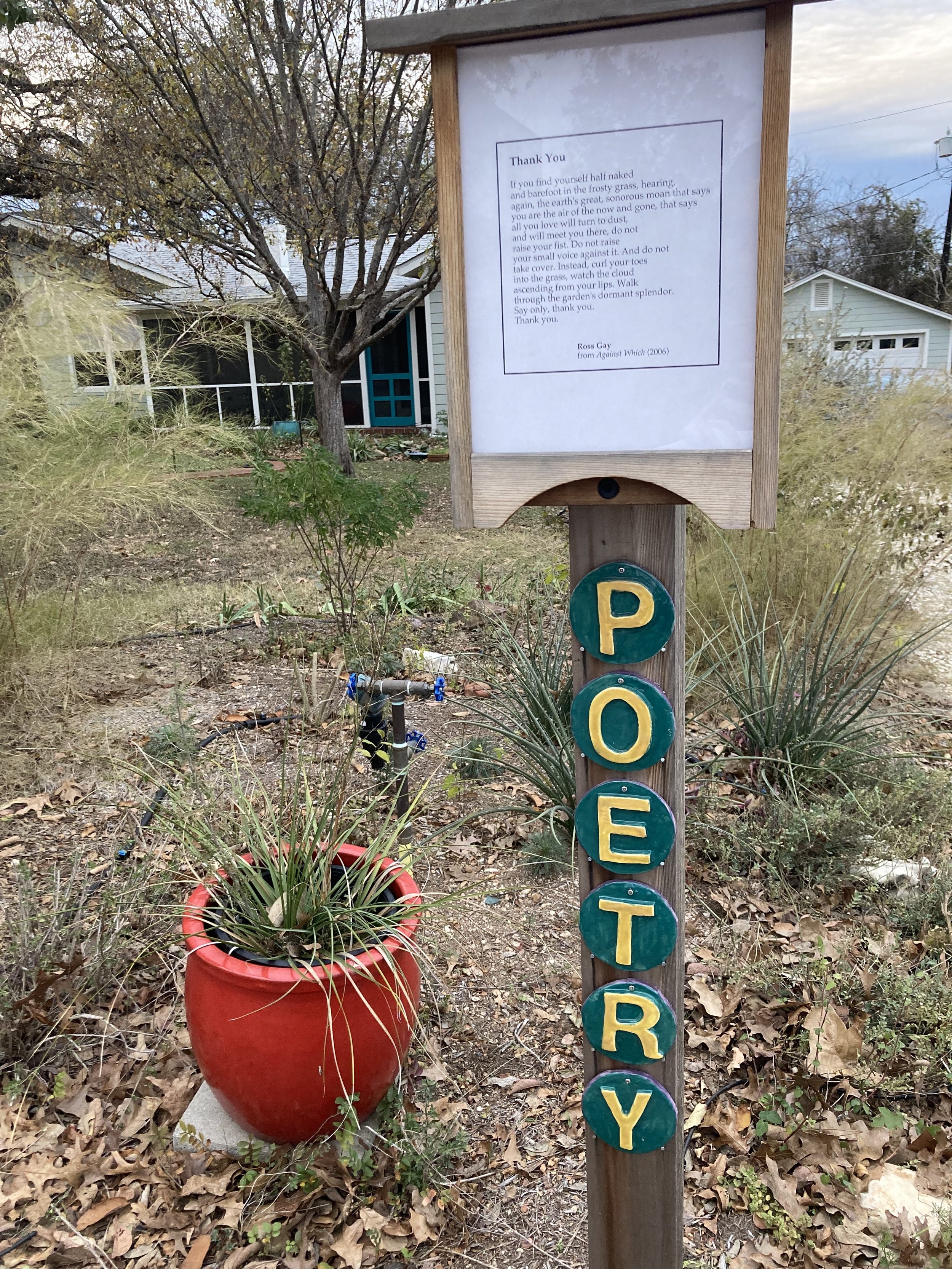The weather map is daunting with its palette of orange, red, and purple. If you’ve found yourself someplace temperate, count yourself lucky. Here in Austin we are burning up and a glimpse across the globe tells me we’re not alone. So I knew heat would be the theme for the poetry box this week, though only the hardiest of dog walkers may pass by in person. Here’s a little plea for a breeze from H.D.
“Fruit cannot drop
through this thick air—”



















